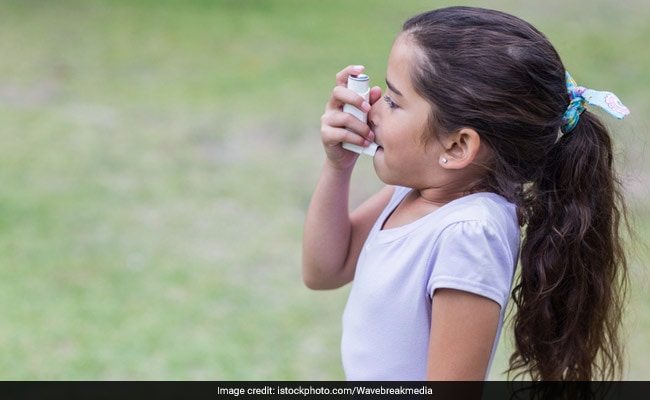
Vitamin D is one of the most important minerals for the body. Apart from strengthening the bones, it also plays an important role for the health of children with asthma. Sufficient levels of Vitamin D can help in making children with asthma more resilient to the harmful effects of indoor air pollution. Vitamin D helps in building immunity and that is primarily the reason behind its effect in controlling asthma, which is a disease mediated by immunity. We speak to Dr Himanshu Garg about the relationship between asthma and Vitamin D. He says, "There has been some evidence which suggests a link between Vitamin D and asthma. It is believed that Vitamin D helps in building a strong immunity and it is thus important for asthmatic adults and children."
Vitamin D and asthma: decoding the link between the two
Researchers have previously found that Vitamin D can influence asthma by changing immune-related and antioxidant pathways. It was also observed that low Vitamin D levels can worsen harmful effects of indoor air pollution - which is caused by cigarette smoke, accumulation of dust particles in carpets, curtains, sofas and unclean floors to name a few - in children with asthma.
Also read: All You Wanted To Know About Asthma In Children
On the contrary, children with high levels of Vitamin D were found to have fewer symptoms of asthma even if they were living in homes with high levels of indoor air pollution.
In a study published in of Allergy and Clinical Immunology, it was found that symptoms of asthma were most pronounced in obese children. As part of the study conducted on 120 preschool children, three factors were considered: levels of Vitamin D in the blood, indoor air pollution and asthma symptoms. 40 (1/3rd) of these children were also suffering from obesity.
It is important for children to get their dose of Vitamin D from either sunlight or food sources of Vitamin D like eggs, salmon, milk, cheese, and other fatty fish. It will help them have healthy bones as well as keep asthma at bay.

Yoga can help in controlling asthma in children
Photo Credit: iStock
Also read: Foods To Eat And Avoid If You Have Asthma
However, the main reason for asthma getting severe or worse in children is because parents don't take symptoms seriously during the initial stages. "Children have smaller airways and thus wheezing is quite common among them. But all wheezing does not mean that children have asthma. It is bronchiolitis in most cases and most children do have it in some point of time. Doctors may not be able to differentiate between asthma and bronchiolitis too soon in children. Once children reach adolescence, then it is comparatively easier to diagnose," explains Dr Himanshu.
But, this wheezing is often not taken seriously by parents and they don't avail their children with proper treatment. "A lot of children grow out of asthma by the time they reach adolescence, but that is only if they get timely and proper treatment for it. Multiple apprehensions about asthma, delay in diagnosis and the myths around using inhalers are the reasons why parents do not seek treatment for asthma in children."
Dr Himanshu suggests that both paediatricians and parents should work towards understanding asthma and the concepts of its treatment.
Also read: Here's How Fruits And Vegetables Can Help In Reducing Asthma Symptoms
Tips to control asthma in children
1. Yoga can be very helpful in controlling asthma in children.
2. Keep your indoors clean and protect children from dusty environments. Make sure that bed sheets, carpets, quilts, blankets, etc are cleaned regularly.
3. Avoid cold drinks or cold water as they can lead to sore throat in children.
4. Avoid foods with artificial flavours.
5. If your child has allergic tendencies, avoid pets and giving soft toys to them.
(Dr Himanshu Garg is Head of Department of Respiratory and Critical Care, Artemis Hospitals)
Disclaimer: This content including advice provides generic information only. It is in no way a substitute for qualified medical opinion. Always consult a specialist or your own doctor for more information. NDTV does not claim responsibility for this information.
Track Latest News Live on NDTV.com and get news updates from India and around the world

